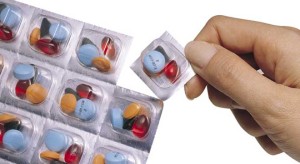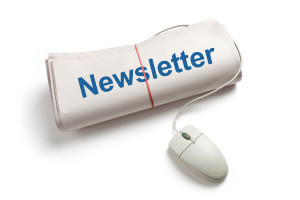InsideHeads has been conducting online focus groups since 1998 and knows exactly which engagement method will work best to meet your research objectives. Read a few of the projects we’ve done and what happened in the end.
CONCEPT TEST FOR A NEW CLEANING PRODUCT 
An enterprising start-up company was preparing to launch a new “green” cleaning product to commercial markets. They had developed a website to support their marketing objectives and wanted reactions from purchase decision makers on the site content and features, as well as their preferred purchase method. Participants were screened via phone using a professional recruiter who purchased a list of the desired target in select industries. Two 90-minute online focus groups were held in one evening and participants were paid $75 for their time. During the group, live web pages of the client site were displayed to all and the moderator asked questions and probed responses. Each participant was able to navigate the website and report on desired features and content. The client team observed the group conversation remotely from their home internet connections. After the groups the client modified the sales strategy and plans to develop more specific content for the site based on concerns expressed by participants. Additional online focus groups are slated to occur after the product launches to obtain qualitative feedback from new users.
 PRODUCT TEST FOR A NEW PRESCRIPTION DRUG
PRODUCT TEST FOR A NEW PRESCRIPTION DRUG
A pharmaceutical company wanted to interview patients and get a better understanding of the side-effects of their new prostate cancer drug. Patients were referred by doctors, who were recruited by phone from a professional recruiter. Doctors provided willing patients the phone number of the research company to schedule their attendance in one of the online groups. Recruiting the doctors took approximately 1 ½ weeks and subsequent patient recruiting occurred simultaneously and took approximately 2 weeks. A total of 6 groups were held over 3 evenings in the same week. Groups were segmented based on the patient’s cancer stage. The brand’s marketing team observed the discussions remotely. Each participant was assigned an anonymous username and encouraged to speak openly about their experiences. The moderator questioned participants about the emotional and lifestyle effects of the disease as well as the specific drug side-effects. The text-based discussion and assigned usernames provided participants an anonymity not achievable in in-person groups. Participants were forthcoming and offered the client great insight into ‘real-world’ side effects.
 WEBSITE EVALUATION FOR AN EMAIL COMPANY
WEBSITE EVALUATION FOR AN EMAIL COMPANY
Marketing executives for a new free email service needed customer feedback on the design and layout of their website. The research sought to identify key branding issues. Participants were recruited online from a panel of registered consumers and segmented into two groups: experienced users of free email and those who use email primarily through their ISP. During each group, several logo designs, tag lines and versions of the home page were displayed on the whiteboard to approximately 12 participants. In just 2 online focus groups a clear preference was identified and the client was able to make key adjustments before launching the service. After the launch, another set of online focus groups were conducted to see what customers thought of the sign-up process and core features offered. Participants were asked to sign-up as a new user of the free email service prior to attending their online group. Only those who actually signed-up were allowed to participate. During the groups participants were shown the website and asked which features were most/least useful. Individual participants were able to interact with different site features simultaneously while the moderator probed their preferences. As a result of this second research phase the client made improvements before launching full scale to more consumers.
 CONCEPT TEST FOR A NEW PRODUCT
CONCEPT TEST FOR A NEW PRODUCT
An online prescription company was looking for a competitive advantage by offering a new pill storage and dispensing method to their customers. The company was looking to identify which promotional strategy to execute. Recruits for this study came from an online research panel. A random selection was notified via email and asked to complete an online screening questionnaire. Participants were selected based on the number of “maintenance” prescription pill medications they took daily. Two online focus groups were held in one evening. Twenty five qualified and available participants were invited to attend each group and 18 and 17 showed-up to participate, respectively. Each group was 90-minutes and participants received $50 for their time. During the groups participants were asked about their purchase, storage and dispensing habits of their prescription pills, and asked to react to various pill organizing solutions displayed on the whiteboard. As a result of the customer comments obtained, the client opted to improve the pill bottle design itself rather than invest in a supplemental organizing system.
 POSITIONING RESEARCH FOR A BIOTECH COMPANY
POSITIONING RESEARCH FOR A BIOTECH COMPANY
A large biotech company was expanding their business and sought to understand the company’s brand positioning. Their marketing strategy included conducting a series of online focus groups among product users over 3 years to determine how, if at all, perceptions of the company, and the competition, changed. Each year scientists and engineers were recruited from a current email address list purchased from a professional recruiter. Prospects were sent a personalized email invitation inviting them to complete an online screener for possible qualification in an online focus group. (The same online screener was used repeatedly for each phase.) A $150 incentive was offered to those who were selected and participated. Recruiting each year took approximately one week and groups were held across two evenings. Each phase had 4 groups segmented by industry. During the groups, participants were shown logos and print ads for 3 different companies and the moderator probed responses. The client observed the discussion remotely and was able to suggest new questions to the moderator privately during the live discussion. The client was able to develop a sound marketing strategy for introducing new product extensions to the brand.
 CONCEPT TEST FOR NEW LIQUOR BRAND
CONCEPT TEST FOR NEW LIQUOR BRAND
An enterprising regional distillery sought to introduce an ultra premium liquor to luxury consumers. The company was developing a brand positioning strategy that focused on a highend lifestyle. The objective of the research was to understand how and why liquor consumers select their preferred brands. Participants were recruited from an email address list provided by the client’s marketing agency. Email invitations included a link to an online screening questionnaire, which included various qualifying questions. For each group, 25 qualified respondents were sent an email invitation with a link to access the online discussion at the scheduled date & time. Participants were also called on the day of the group to increase show-rates. Two groups were held and 16 and 18 people showed-up to participate. During the groups participants were shown a mock liquor aisle and asked to zoom-in and respond to the brands shown on the shelves. The moderator probed responses to better understand opinions of brand loyalty, product placement and price. The research provided the client insight into potential marketing challenges and the company ultimately opted to launch a brand extension instead of develop a new brand from scratch.
 WEBSITE EVALUATION FOR A UNIVERSITY
WEBSITE EVALUATION FOR A UNIVERSITY
A design firm was building a website for a large university that would attract prospective students and encourage them to apply to the school. For this study prospective college students were recruited from a list of high school seniors. Prospective participants received an email inviting them to complete an online screening questionnaire. Students were selected to participate in the discussion based on the schools to which they applied, which was reviewed by the client before final selections were made. A total of 25 available students were offered $50 to attend the discussion. Each was sent an email notice to participate, which included the group date and time and a link to the online focus facility. Each student also received a reminder call a few hours before the groups were scheduled to start. Two groups were held among 14 and 16 students who showed-up to participate. During the groups participants were shown 3 different websites and asked to review features while the moderator probed to determine the areas of least and greatest interest. The design team observed the discussion remotely. The conversation was dynamic, the group feedback enlightening. The design firm was able to incorporate the findings into their presentation to the school the next morning.
 CONCEPT TEST OF A WEB GAME FOR KIDS
CONCEPT TEST OF A WEB GAME FOR KIDS
An international candy company was looking to extend their marketing and was considering developing a branded interactive web-based game for 8-12 year olds. The objective of the research was to determine the validity of the idea and level of potential interest. For this study children 8-12 years were recruited via their parents, who were members of an online research panel. In accordance with the Children’s Online Privacy Protection Act, written consent was obtained by each parent. Parents who successfully submitted the signed consent form received additional instructions for their child to access the virtual focus facility and participate in the discussion. Parents also received a reminder call on the day of the group. Parents were asked to observe and allow their child to type his/her own responses to the moderator’s questions. Four 60-minute online groups were held, each segmented by age (8-10, 11-12) and gender. An average of 15 kids showed-up to participate in each group. The children were highly engaged and responsive as the moderator guided them through different screen shots of both the proposed website and competitive websites. The client walked away from the research study with clear feedback and ultimately decided not to invest in the project because it would not yield long-term value for the brand.
 NAME TEST FOR A NEW BUSINESS
NAME TEST FOR A NEW BUSINESS
An international telecom company needed to quickly gauge customer reactions to proposed names for a new small business website. For this study participants were recruited from an opt-in email list of employees at small businesses to an online screening questionnaire. In less than a week, 4 online focus groups were held, segmented by company size. During the groups, participants were shown concepts for the new site and asked to comment on proposed names, which were displayed individually on the whiteboard during the discussion. Reactions were probed to determine what each name implied to participants. Mockups of the proposed site were shown so participants could react to the features offered. After looking at the site mockups, participants were again shown potential names and probed for the reasons for their choices. The client and their ad agency team observed the groups remotely and chatted amongst themselves online without being visible to participants. The data gathered were used to select the name of the new site, which launched shortly thereafter.
 CONCEPT TEST FOR A NEW INTERACTIVE PROMOTION
CONCEPT TEST FOR A NEW INTERACTIVE PROMOTION
An international beauty products company had a novel idea for sparking interest in its products. An online ‘banner’ was created that linked to an interactive frame showing how to use a specific product and offered application tips and color suggestions. Online focus groups were utilized to test the feature among young adult females. An enticing offer to participate in research and link to an online screening questionnaire was placed on the client’s home page to recruit prospective participants. Screening online also allowed for an automatic system check to ensure the participant taking the screener had the correct software installed on his/her computer to view the video effectively during the group discussion. During the group different videos were displayed to each participant and reactions collected and probed by the moderator. Each participant was able to simultaneously proceed through the product demonstration in the video at her own pace. The client received valuable information and made changes to the application before placing the successful video on the site.
 PSYCHOGRAPHIC STUDY OF GENERATION Y
PSYCHOGRAPHIC STUDY OF GENERATION Y
To learn more about Gen-Yers and their relationships to automobile brands, a car manufacturer wanted to conduct online focus groups to parallel results to traditional groups. In the in-person focus groups, participants brought objects and made collages to depict themselves and their relationship to their cars. The challenge was to use a similar technique, but accomplish it online. Participants were recruited via phone by a professional recruiter. The research company sent a disposable digital camera to 15 participants and asked them to take pictures of their cars and those things that best depicted their lifestyle. Ten participants returned the cameras in advance of the group and an online ‘photo album’ was created. Participants were asked to add captions to their virtual collage and resubmit the file before the group date. Eight participants showed-up to participate and receive the $75 incentive. During the group each participant’s virtual collage was displayed and explained by the participant. The conversation was lively and revealing. The client was impressed with the high quality data gathered using online focus groups.
 RELATIONSHIP MARKETING STUDY FOR A CONSUMER PACKAGED GOODS COMPANY
RELATIONSHIP MARKETING STUDY FOR A CONSUMER PACKAGED GOODS COMPANY
A multi-national consumer packaged goods company needed to test the effectiveness of its relationship marketing club and online newsletter for a particular line of products. To find out why some website visitors joined and others did not, both members and non-members were studied. Online focus groups were used to test new concepts and designs for the newsletter. The data was utilized to improve both club benefits and newsletter features. Six months later, another set of online focus groups were held to test the effectiveness of newsletter improvements, and to determine how club membership and the newsletter affected brand loyalty and purchase intent. Specifically the client was seeking ways to increase club membership. Both members (solicited through email invitation) and non-members (recruited from the client’s site) were screened to verify qualifications and confirm availability. The client considered the results and recommendations so valuable and compelling, that the report was distributed to all of their brand managers to improve their division’s relationship marketing program.
 POSITIONING STUDY FOR A BEACH DESTINATION
POSITIONING STUDY FOR A BEACH DESTINATION
A popular U.S. beach destination hired a marketing company to understand their “brand” image among visiting tourists. Specifically they sought to understand how their city was positioned in the minds of visitors relative to other beach destinations and to ultimately differentiate themselves in their advertising. Beach-going consumers within driving distance of the destination were recruited from an online research panel via email invitation to an online screener. A total of 4 groups were held over 2 evenings. Participants were segmented into groups based on income level and travel habits obtained from the screener (“Mid-level” and “Upscale” Travelers). The marketing company staff observed the groups remotely from their home internet connection while the professional online moderator managed the conversation. Participants provided reactions to five specific beach destinations during the groups. Three unique message concepts and three unique photo collages were reviewed separately on the whiteboard. Participants could enlarge the collages and view them individually in a separate browser window. After the groups the moderator was able to quickly review the transcripts and offer key insights to the client, who used the customer quotes to bolster their presentation to the city.
 WEBSITE EVALUATION FOR A MEDICAL COMPANY
WEBSITE EVALUATION FOR A MEDICAL COMPANY
A professional medical Website was attracting an increasing number of consumers and didn’t know why. Participants were recruited from the client’s website and directed to an online screener. Eligible respondents were contacted via email and asked to visit and review 3 specific sites before participating in the focus group. Only those who completed the homework assignment were allowed to participate. Six online focus groups were held. The design, layout and content of the client’s site was reviewed and compared to three other medical websites. Respondents were asked why they seek medical information online and how useful they found the information on the 3 websites visited. The client decided to develop a consumer-oriented medical website as a direct result of the research findings. After creating a prototype of the site, another set of the focus groups were conducted. Participants were recruited via email from among those who had responded to the initial screener, but had not been selected for the first groups. Participants were probed for reactions to the proposed content and features. Their input was used to develop the final site, which was successfully launched a few months later.
 PRINT AD TEST FOR A TOURISM CAMPAIGN
PRINT AD TEST FOR A TOURISM CAMPAIGN
A marketing company was consulting the tourism board of a popular US city and sought reactions from non-business visitors to the existing print ad campaign, as well as reactions to 3 new print campaign concepts. For this study prospective vacationers were recruited from an online research panel via email invitation and screened using an online questionnaire. Two focus groups were held in one evening and the marketing consultant and members of the tourism board observed the conversation remotely. During the groups the moderator probed participant feedback on 3 different print advertising campaigns, plus a new print ad concept. Print ads within each campaign were displayed individually on the whiteboard, then together as one campaign. The marketing team was able to identify emotional triggers from the transcripts and develop a cohesive visual presentation strategy to attract more visitors and promote the city’s attractions effectively.
 POSITIONING STUDY FOR A HOME REPAIR BUSINESS
POSITIONING STUDY FOR A HOME REPAIR BUSINESS
A regional home repair company held a long-term leadership position in the marketplace. The company was looking to update their marketing materials and wanted to get feedback from customers. Because a limited number of customer email addresses were available, participants were recruited from the company’s customer mailing list via postcard invitation. Willing customers were asked to phone or email the research company and answer a short screening questionnaire. Recruiting continued for a period of 2 weeks until both groups were filled. Twenty-five qualified respondents were invited via email to attend the discussion. The email invitation included a link to the online discussion and their assigned username. Two groups were held in one evening and the company’s marketing team observed remotely from their office. During the groups participants were asked about their relationship with the company and shown various images to represent different moods and feelings. The moderator probed responses to uncover the emotional connection between the customer and the repair company. As a result of the research the company was able to re-prioritize their marketing messages and improve customer communication.
Let’s connect & talk it through
Get Tips & Joy from InsideHeads (that’s our newsletter)
See also
how do i get to be part of these studies
Hi Monique, we can’t guarantee that you will qualify, but you can’t even be considered if you’re not registered. The only way we know you may qualify is if you’re in the database, which is quick, easy and free to do. Select the Join Now link on this page and you’ll be on your way. Good luck!